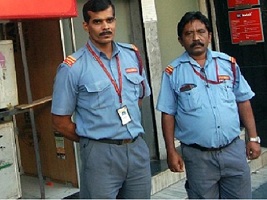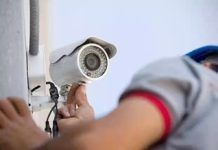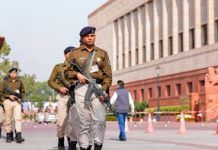After nearly 15 years since the Private Security Agencies Regulation Act was notified in 2005, the Union Ministry of Home Affairs has finally recommended the change in the Rules accompanying the actual Act, which are likely to bring relief to the private security industry in India. In a notification, the Ministry of Home Affairs (MHA) has invited comments and suggestions, from individuals and organisations, on the draft Private Security Agencies Central (Amendment) Model Rules, 2019. FICCI’s Private Security Industry Committee had been pursuing MHA since the past many years urging it to review the original act to make the relevant changes and pave the way for smoother business operations for the guarding agencies.
With private security agencies becoming one of the major job generators in the country, the government is now all set to frame new rules for the sector to pave the way for its development and contribute to employees’ welfare.
Due to the expansion of economic activities, the sector is growing at a very fast rate and as per an estimate, it employs 90 lakh people. The government envisages improving the level of enforcement of the act and the rules. Therefore, it has been decided to consider modification in the model rules made under section 24 of the act to bring in substantial improvements in its enforcement. This will pave the way for the development of the sector and contribute to the welfare of employees in this industry, the notification said.
The Private Security Agencies (Regulation) Act, 2005, and the states and union territories rules based on the Private Security Agencies Central Model Rules, 2006, are under implementation in the country for over a decade. The ministry said since the Private Security Agency Licensing Portal has been launched, there will be no need for manual police verification of details of directors, partners or proprietors of companies at the time of applying for the license. The verification of their antecedents will be facilitated through electronic databases of crime and criminals like the Crime and Criminal Tracking Networks and Systems (CCTNS) and the Interoperable Criminal Justice System (ICJS).
In real terms this amendment in Rule 3(3) means that now there won’t be a cop from the local police station visiting the home and office of the guarding agency’s owner(s) to verify their antecedents. It was socially embarrassing as well as inconvenient for agency owners to have cops knocking on their doors every now and then, as an application for the PSARA licence in each state required the police verification. This duplication of work also meant extra unnecessary work for the police. An amendment in Rule 3(4) proposes to do away with the obtaining of information related to whether the applicant or the company earlier operated any Private Security Agency, either individually or in partnership with others and as to whether the applicant possesses any special qualification or skill, which may facilitate his operation of a Private Security Agency as this is not provided for in the parent Act. This is proposed to enhance ‘ease of doing business’ and to further reduce procedural formalities.
For payment of fees for license, this amendment allows electronic payment along with banker’s cheque or demand draft as other payment modes. The notification said the Centre has made the National Skills Qualification Framework (NSQF) mandatory from December 27, 2018, and this recent advancement is to be made a part of the model rules.
Private security agencies will be allowed their own designations under the model rules. The changes shall be welcomed by the industry as they bring about relief by paving the way for smoother business operations.
The statement indicating modifications to the Private Security Agencies Central Model Rules along with stipulation of the principal act and reasons for changes, and draft of the proposed amended rules in this regard can be downloaded for comments and suggestions from mha.gov.in/sites/default/files/PrivateSecurityAgencies_06112019.pdf








